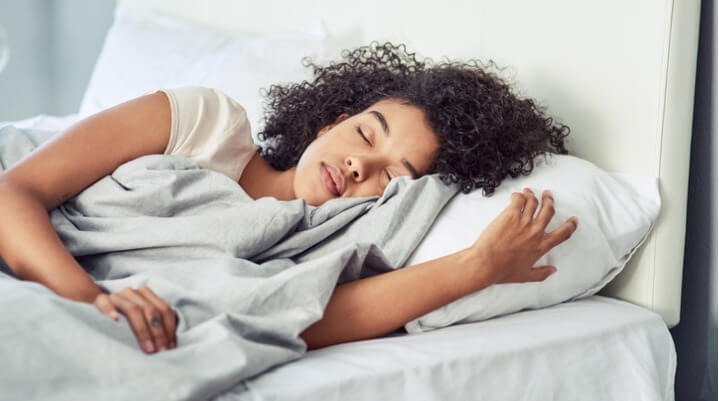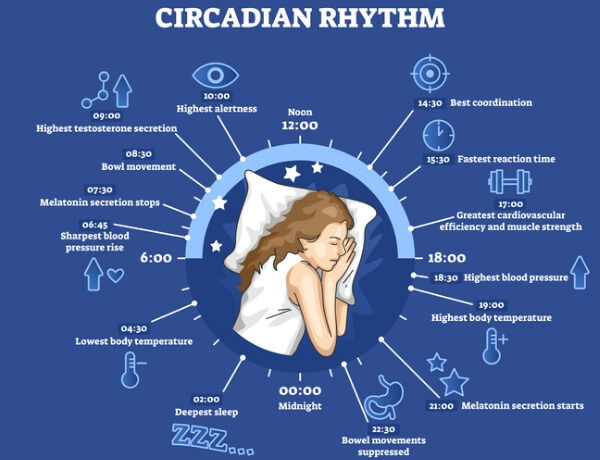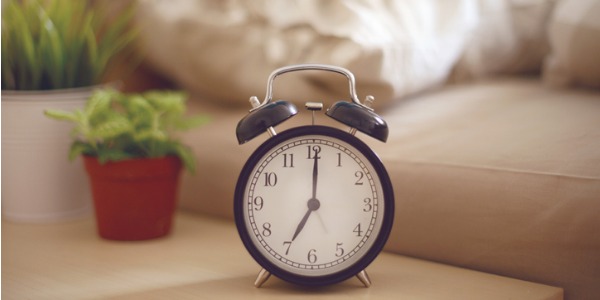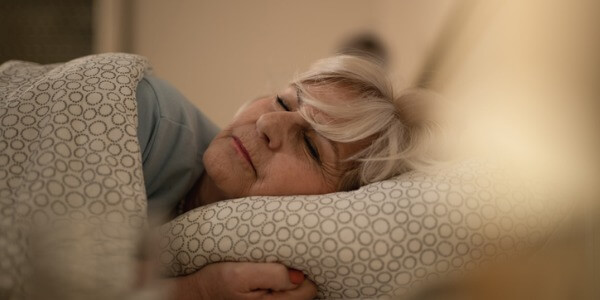Health Hub
What to do if you can’t sleep: 5 causes and solutions

Almost half of adults in the UK say they have had problems with sleep during the COVID-19 pandemic lockdown. Even children have been affected, with a recent survey showing that 70% of under-16s are going to bed later and 57% waking later.
If you’re struggling to get enough good quality, restorative sleep, some simple lifestyle changes may make all the difference.
Here, King Edward VII’s Hospital Ear, Nose and Throat consultant Mr Jahangir Ahmed discusses five factors that could be responsible for poor sleep, and what you can do about them.
Why is sleep important?
The obvious benefit of good sleep is that it leaves you feeling refreshed and energised enough to tackle the day. But getting enough sleep is important in many other ways.
Good sleep is vital to establish a regular circadian rhythm (also known as your sleep/wake cycle). If you can’t always get to sleep or wake up at a set time, your circadian rhythm could be off. Think of it as an internal clock that runs in your brain, and makes you alternately tired and alert.
For the vast majority of people, their biggest lulls in energy occur after lunchtime (between 1-3pm) and in the middle of the night (around 2-4am). If you sleep well, you won’t notice these dips in energy – but if you’re sleep fatigued, they’ll hit you much harder. If you go to bed around the same time each night and wake up around the same time each morning, with an adequate amount of quality sleep, your circadian rhythm is likely to work well too.

Good sleep also allows for ‘brain plasticity’: the brain’s ability to process what happens on a daily basis and form longer term memories. Too little sleep impairs learning, both on the day after a poor night’s sleep and longer-term.
Feeling tired also makes us irritable, which can have a knock-on effect on our relationships with our partners, children, other family members, colleagues and friends. Tiredness could also lead to poor decisions, or even risk-taking and cutting corners. This, in turn, may lead to potentially fatal accidents.
When we’re constantly feeling tired, our work can suffer, we might struggle to recall information or find our creative side and we can begin to feel low. We may also choose to cancel social arrangements, neglect exercise and healthy eating in favour of ‘easier’, less healthy options; behaviour that leads to further poor sleep, causing a vicious spiral.
A chronic lack of sleep impairs immunity, putting us at more risk of getting colds and flu, and may predispose us to serious illnesses such as depression, strokes and heart attacks.
How to fix your sleep schedule

There are varying factors that can interfere with quality of sleep – including work shift patterns, looking after a new baby, anxiety about various life situations or indeed having an uncomfortable bed. You may have a sleep related disorder, such as obstructive sleep apnoea. Having a partner that snores is more than an annoyance, it can cause severe sleep deprivation.
Good ‘sleep hygiene’ is about providing the best environment to ensure we get a good sleep. This means going to bed and waking at roughly the same time each day (including at the weekend), avoiding stimulants such as alcohol, caffeine, nicotine, a large meal or strenuous exercise in the hour before bed, and making your bed and bedroom comfortable.
Here are five other factors you might not have thought about that could also be affecting your sleep patterns:
- The temperature and light levels of your bedroom
A comfortable bedroom doesn’t just mean a comfortable bed. It extends to making sure your bedroom environment is free from clutter, is as quiet as possible and that the temperature and light levels are right.
A bedroom that is too warm will hinder good sleep, so aim to keep the heating on low, or not on at all, in your bedroom. Sleeping with the window open will help in the summer months, but only if your street is quiet or your bedroom is at the back of your house.
Use cotton bedding and wear pyjamas made from cotton or other natural fabrics that allow the skin to breathe, rather than man-made fabrics such as polyester that can encourage sweating.
Equally, a bedroom that is too bright or too noisy will also negatively impact your sleep. If you need to sleep with a light on, aim for a dim night light or salt lamp.
Use blackout blinds or a wear an eye mask if your room is made bright by an external street light. Ear plugs or a white noise machine turned on quietly in the background will also help to block out external irritant noises such as traffic or a partner who snores.
- Your age

As we age, our sleep patterns tend to change – we might notice that we tend to go to bed (or feel tired) earlier, stay asleep for shorter lengths of time, wake more frequently during the night and feel the need for more daytime sleep.
It’s a common misconception that we need less sleep as we age, and that sleepiness during the day is just another part of getting older. Lack of sleep as we approach our older years can put us at a greater risk of trips and falls as we become less steady on our feet, so getting enough sleep is important.
If you’re struggling to fall or stay asleep and you’re aged over 60, aim to go to bed and wake at the same time each day. A bedtime routine, where you begin to wind down, have a hot drink and avoid caffeine, alcohol and large meals in the hour or two before bed will also help.
Staying active as much as possible during the day, getting fresh air and sitting by a large, bright and airy window will help you to stay awake until bedtime, so that you’re more likely to fall and stay asleep at night. If you do need to nap, don’t nap at night as this can disturb your bedtime sleep, nap in the afternoon instead. Also try to limit your nap to 45 minutes at most. Any longer than this and you are at risk of losing concentration and feeling “groggy” for the rest of the day. But even if you just take a nap for five minutes, this can improve your memory processes and alertness.
- Using technology before bed
The blue light emitted from our smartphones, tablets, laptops and TVs can interfere with our sleep patterns too.
Using tech devices before bed is tempting and a habit many of us have, but the blue light they emit mimics daylight and tricks our brains into thinking its daytime, preventing the release of the sleep hormone, melatonin. This process stimulates our brain and can prevent us from unwinding.
Using devices to browse social media before bedtime is a particularly bad idea, as it can lead to an active stream of thoughts both positive and negative, stress and anxiety at a time when your mind should be slowing down.
It’s best to avoid using electronic devices in the half an hour before we sleep. Try to wind down by reading a book or magazine instead.
Turning off your smartphone, or at least switching it to silent, is a good idea too, as notifications and bleeps can wake us from a deep sleep.
- Medications
There are some medications that interrupt and prevent good sleep. These include certain types of:
- Slimming pills
- Painkillers or cold remedies that contain caffeine
- Steroids
- Anticonvulsants
- Blood pressure medications
- Some antidepressants
- Diuretics
If you think that your prescribed medications may be disturbing your sleep, it’s important to speak to your GP who can trial different medications for your condition. Don’t stop taking any prescribed medications without speaking to your GP or consultant first.
- Anxiety and stress

Feeling anxious or stressed can severely impact on our sleep. It’s normal for us to have a few nights of interrupted sleep if there’s something such as a job interview or a big social event coming up. Once the event is over, our sleep patterns should return to normal.
But if stress and anxiety is causing you to lie awake for hours on end at night, then seeking help is important.
Rather than mulling, see if you can alleviate your stressors for example by speaking to your manager about your workload, discussing financial worries with your bank or talking openly to a partner, trusted friend or family member about the way you’re feeling.
You might want to speak to your GP about therapy, such as cognitive behavioural therapy (CBT), or medications to help you manage your anxiety.
According to the author of The Business of Sleep, Professor Vicki Culpin: “Never before have significant percentages of working adults been so sleep deprived” – so if you’re struggling, you’re not alone. Seeking help or taking self-managed steps to a better night’s sleep could significantly improve your quality of life.
More information
- If you’re struggling to sleep and you’ve tried different methods to help, but to no avail, it’s worth speaking to your GP who can discuss treatment options with you. (Don’t have a GP?)
- If your sleep is disrupted by snoring, choking or stopped breathing at night (apnoea) King Edward VII’s Hospital Ear, Nose and Throat Department specialises in surgery for conditions relating to these problems.
- If you suffer with sleep apnoea, our Respiratory Medicine Unit can also help.
Article Sections
Latest Hospital News
Should you wish to speak to our press team, please visit Press Enquiries




